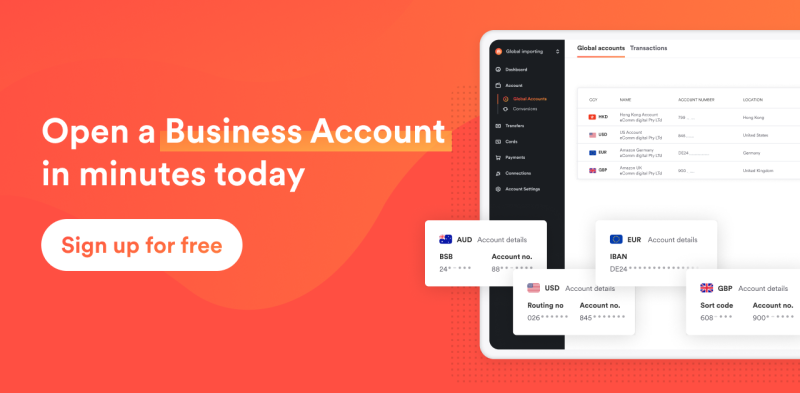Money transfer to Korea: common methods, processing time and fees

- •Why should you use South Korean Won (KRW) for payments?
- •3 common methods to transfer to Korea
- •Comparing various approaches to sending money to Korea
- •Remittances to North Korea vs remittances to South Korea
- •Things to note before sending large remittances to South Korea
- •Pre-remittance preparations for wholesalers
- •What are the advantages of using Airwallex for remittance to Korea?
- •FAQs
South Korea is a key trading partner of Hong Kong, where businesses in both regions engage in frequent transactions. It is extremely important to have a convenient, fast, and secure method to send funds to South Korea, as it directly impacts the relationship and profitability between both parties.
This article compares the three most common methods for money transfers from Hong Kong to South Korea, covering factors such as handling fees, processing times, exchange (FX) rates, and other key considerations.
Why should you use South Korean Won (KRW) for payments?
In South Korea, cashless and digital currency transactions have become mainstream. The local landscape has fully embraced the era of digitalization, with most stores and public transportation opting for digital payments. In addition to daily life, using KRW also simplifies payment when dealing with Korean suppliers like food companies or local businesses. This method is straightforward, and helps sidestepping currency conversion costs and minimize associated handling fees.
In case of urgent or large orders that require immediate payments, using KRW can speed up the process and ensure swift transaction completion. This strategy not only saves time but also reduces risks associated with currency conversions, handling charges, hidden expenses, FX rate fluctuations, and payment delays.
3 common methods to transfer to Korea
There are three common methods to send money from Hong Kong to South Korea, including bank international remittance services (wire transfers or through online banking), money changers, and third-party financial and remittance platforms such as Airwallex.
Bank international remittance services (wire transfers or through online banking): Sending money to Korea through bank branches, online banking or mobile application is the mainstream and most common approach. Remitters will need to provide the recipient’s Korean bank information, such as bank account number, branch code, SWIFT code and more. This method usually incurs multiple charges and higher FX rates, with the transaction speed subject to the policies of the involved banks and international remittance limitations.
Money changers: Some money changers in Hong Kong offer remittance services, but not all offer the option to send funds to South Korea. The reputation and credibility of money changers vary widely, with occasional reports surfacing about unlicensed operations or questionable credibility. Remitters may also face elevated FX rates, potential handling charges, and restrictions on the remittance amount. Therefore, money changers may not be the most suitable option for large remittances.
Third-party remittance platforms: Third-party financial and remittance platforms like Airwallex provide a secure alternative. Airwallex is regulated by the Hong Kong Customs and Excise Department and holds a MSO license. Unlike traditional banks, Airwallex also offers more favourable FX rates without hidden charges, so businesses can save while sending funds to Korea in a convenient, secure, and cost-effective manner.
Comparing various approaches to sending money to Korea
| Airwallex | Bank wire transfers | Money changers | |
|---|---|---|---|
| Processing time | Transactions can be credited as fast as on the same day | 1 to 5 business days | 1 to 5 business days |
| Fees or charges for overseas transfers | $0 account opening fees, monthly fees, or hidden charges | Multiple handling charges apply, with the basic fee ranging from approximately HK$50 to $200 | Multiple charges apply |
| Local legal restrictions | South Korean citizens have an annual limit on cross-border remittances. | ||
Remittances to North Korea vs remittances to South Korea
Remittance to North Korea: Restrictions and challenges
Due to numerous international sanctions imposed on North Korea and its closed economy, many financial institutions have either restricted or ceased their financial dealings with the country. The FX rate in North Korea is also unstable, which further adds onto the risk of currency fluctuations.
Legal framework for remittance to North Korea and South Korea
South Korea adopts the open market economy with a robust remittance system in the financial industry. In mid-2023, South Korea announced that proof of documentation or declaration of funds is no longer required. The annual remittance limit for local citizens has also been raised from US$50,000 to US$100,000, showcasing the South Korean government's intention to expand the foreign exchange market.
When sending money from Hong Kong to South Korea, the preferred remittance method should be chosen based on factors such as the maximum limit, FX rates, and handling fees for KWR remittances.
Things to note before sending large remittances to South Korea
Here are the considerations before sending large remittances from Hong Kong to Korea:
Payment process and restrictions: Understand the restrictions on remittance set by various methods, such as the daily or individual transaction limits, the purpose of remittance, and the required documents. Certain remittances may require additional documents, such as proof of identity for the sender or the recipient.
Real-time FX rate and remittance fees: Stay updated on the latest KRW FX rates to decide on the optimal timing for your remittance. Banks offer differing rates for buying and selling, alongside potential transaction fees. Third-party financial and remittance platforms like Airwallex provide attractive FX rates and waive transaction fees. Large remittances come with notable exchange costs, so it's essential to compare rates from various institutions and opt for the most competitive rate for your remittance.
Processing time: Various bank and third-party remittance platforms have different processing time. Choose a provider that offers same-day crediting to handle urgent transfers, whether big or small.
Licenses and reliability: Choose a reputable and reliable bank or third-party remittance platform for large remittance. Ensure that they have appropriate security measures in place to protect personal and financial information.
Risks associated with different remittance methods: Opt for institutions that offer remittance tracking services so you can check the status and expected arrival time online or through mobile applications. This helps mitigate the risk of delays.
Pre-remittance preparations for wholesalers
If you are a wholesale distributor for a food company, here are the preparations needed before sending money to Korea:
Sales contract: Ensure that you have a valid sales contract with the Korean company. The contract should include details about the purchased goods or services, pricing, and transaction terms.
Remitter and recipient information: As the remitter is your food company and the recipient is the Korean company, you need to provide accurate bank details for both parties, including the name of both banks, branch name, account number, and SWIFT code (if required), etc.
Remittance details: Such as remittance amount, purpose of remittances, currencies, etc.
Remittance fees and FX rate: Compare the remittance fees and FX rates of banks and remittance platforms, and select the one with lowest costs and fastest crediting.
Documentary proof: Certain banks or remittance platforms may require relevant documents, such as Business Registration Certificate, authorization letters, and identification documents.
What are the advantages of using Airwallex for remittance to Korea?
Airwallex is an all-in-one leading global financial platform for modern businesses including wholesale trading, offering trusted solutions to manage everything from payments, remittance, currency exchange and beyond, to help you enter the Korean market affordably, simply, and reliably. Within minutes, you can open a business account under your company’s name through Airwallex at any time. There are no account opening fees, monthly fees, minimum deposit or transaction amounts.
With Airwallex's FX & Transfers, wholesalers have the flexibility to pay in their suppliers' local currencies. Moreover, up to 70% of international payments can be credited on the same day. For additional KRW exchanges, you can enjoy competitive exchange rates and avoid hidden transaction fees.

FAQs
1. Can banks in Hong Kong remit to Korea?
Yes, some Korean banks such as Shinhan Bank and Hana Bank have branches in Hong Kong, and they offer various financial services including deposits, loans, remittances, and FX transactions.
2. Will there be any delays when banks in Hong Kong remit to Korea?
There are usually no major delays. Nevertheless, the overall processing time might be affected by factors such as verification of remittance information, involvement of intermediary banks, and potential regulatory scrutiny for large remittances.
3. Can I send money from Hong Kong to Korea if I don't have a local bank account in the Korean banks?
Yes, you can still send money from Hong Kong to Korea with wire transfers, money changers, or third-party remittance platforms like Airwallex.
Share

Kirstie Lau is a fintech writer at Airwallex, and has built up a wealth of knowledge in financial operations systems. In her day-to-day, she dedicates herself to crafting content that fits the unique needs of businesses seeking financial operations solutions. Kirstie’s background in analytics and product marketing gives her a unique perspective on guiding businesses through the complex world of payments.
View this article in another region:Hong Kong SAR - 繁體中文

